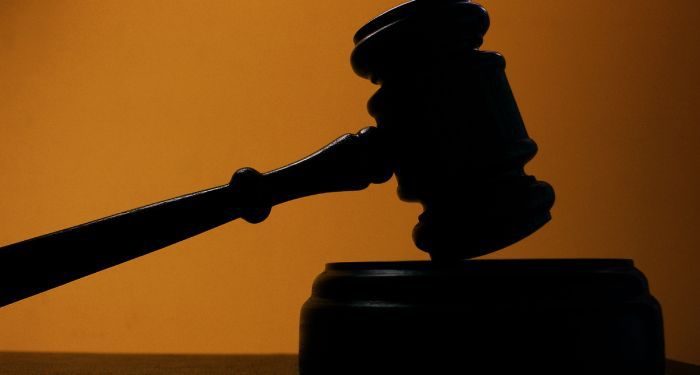
Key Parts of Iowa Book Ban Bill Cannot Be Enforced
In a decision that came down Friday, December 29, 2023, U.S. District Court Judge Stephen Locher called for an injunction on an Iowa law that would permit a wide swath of book bans across the state. The decision was made as a result of two current lawsuits in the state over the law.
The injunction is not a ruling on either case, but it is the first step in hearing the cases in full. Judge Locher granted the injunction and enjoined enforcement of Senate File 496, which was set to go into effect January 1, 2024. The law would require all materials in schools be “age appropriate” and that there be no “descriptions or depictions of sex acts,” defined by Iowa Code 702.17, among several other provisions limiting discussion or instruction about gender or sexuality.
Injunction and enjoinment mean that both cases will be heard before the law can be implemented in full. So for now, books in schools across the state of Iowa will remain as they are.
According to the preliminary injunction:
The law is incredibly broad and has resulted in the removal of hundreds of books from school libraries, including, among others, nonfiction history books, classic works of fiction, Pulitzer Prize winning contemporary novels, books that regularly appear on Advanced Placement exams, and even books designed to help students avoid being victimized by sexual assault. The sweeping restrictions in Senate File 496 are unlikely to satisfy the First Amendment under any standard of scrutiny and thus may not be enforced while the case is pending. Indeed, the Court has been unable to locate a single case upholding the constitutionality of a school library restriction even remotely similar to Senate File 496.
Although not yet a win in either lawsuit, this is a huge victory for anti-censorship. The judge recognized not only the First Amendment rights being infringed upon by such a sweeping ban of books across the state, but also emphasized the specific types of books being scrutinized by it. This kind of bill was unprecedented in scope.
“This is a big win for education professionals, students, and parents,” said the Iowa State Education Association. “This ruling means they can continue successfully guiding all students without fear of punishment or losing their jobs.”
The judge also granted a preliminary injunction and enjoined another piece of Senate File 496, related to gender and sexuality education in schools:
The law forbids programs, promotion, and instruction to students in those grades relating to “gender identity” and “sexual orientation,” but those terms are defined a neutral way that makes no distinction between cisgender or transgender identity or gay or straight relationships. Meaning: on its face, the law forbids any programs, promotion, or instruction recognizing that anyone is male or female or in a relationship of any sort (gay or straight). The statute is therefore content-neutral but so wildly overbroad that every school district and elementary school teacher in the State has likely been violating it since the day the school year started. This renders the statute void for vagueness under the due process clause of the Fourteenth Amendment because the State will have unfettered discretion to decide when to enforce it and against whom, thus making it all but impossible for a reasonable person to know what will and will not lead to punishment.
One aspect of the law, though, was not granted such injunction or was it enjoined. Senate File 496 requires that districts notify parents when a student requests use of pronouns that do not match school records. Judge Locher stated that because only one of the lawsuits addresses this and because the plaintiffs themselves are not subject to its enforcement–they are “out” to their families already–the injunction could not occur.
In rendering the preliminary injunctions, Judge Locher explained findings from previous book ban cases, including Pico vs. Island Trees and Pratt v. Independent School District No. 831. These findings, he wrote, put the onus of responsibility for justifying such book restrictions on the state:
Based on Pico and Pratt, the Court concludes that: (a) the Student Plaintiffs have a First Amendment right not to have books and materials removed from the school library based on ideological, religious, or other grounds designed to suppress ideas or impose a “pall of orthodoxy” over the classroom; and (b) the State must establish a “substantial and reasonable governmental interest” that justifies the school library restrictions.
Iowa Governor Kim Reynolds expressed frustration about the decision, stating in a short press release that “there should be no question that books containing sexually explicit content — as clearly defined in Iowa law — do not belong in a school library for children. The fact that we’re even arguing these issues is ridiculous.” Reynolds pushed the law through with heavy support from members of Moms For Liberty chapters in Iowa (including those who have purposefully lied about their “parental rights” being infringed in local districts).
No word yet has come from the districts which have already pulled titles to be in compliance–it is likely to come in the next few weeks as schools return to session. Among the districts who began to pull books include Mason City, which utilized AI to find books depicting “sex acts,” Iowa City, and dozens more, which are available in a Des Moines Register database.
Read the entire decision here, with excellent analysis by Laura Belin at Bleeding Heartland here.














